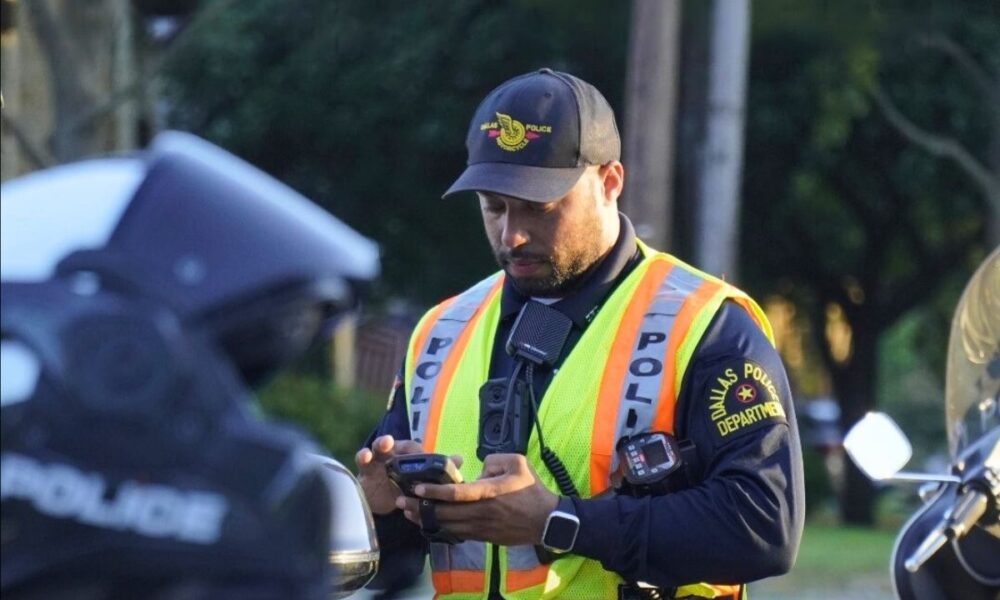Dallas’ proposed budget for the next two fiscal years appears to leave the city short of meeting key requirements in Proposition U, the voter-approved charter amendment that set minimum staffing and pay standards for the Dallas Police Department (DPD).
Passed in 2024, Prop U requires the city to maintain at least 4,000 sworn officers and to ensure starting combined salary and non-pension benefits for DPD officers are ranked in the top five among police departments in Dallas, Collin, Tarrant, Denton, and Rockwall counties with populations over 50,000.
The amendment also mandates that at least half of all unrestricted year-over-year revenue increases be directed first to the Dallas Police and Fire Pension System, with the remainder going toward those public safety goals until they are met.
Staffing Projection Remains Below 4,000 Officers
According to the FY26 proposed budget, the city expects to hire 350 additional officers in FY26 and 400 more in FY27, ending FY26 with 3,424 sworn officers. That is 576 short of the 4,000-officer minimum required by the charter amendment.
Pay Plan and Regional Ranking
The budget includes a proposed 7.71% increase in entry-level pay to $81,232. City officials say that when combined with bilingual stipends, education pay, and night shift differentials, DPD would be “one of the regional leaders” in starting compensation.
According to the city’s budget office, these three add-ons were factored into the overall starting pay calculation presented to the council. These forms of compensation are not available to all new officers and are awarded based on specific qualifications or assignments.
Prop U specifies that starting combined salary and non-pension benefits be measured “on a per officer basis,” which refers to the base compensation available to all new officers at the time they start, without requiring additional qualifications or special assignments.
A regional pay comparison reviewed by The Dallas Express shows Dallas’ base starting pay would rank 12th among area departments and about $4,700 below the $85,925 needed to reach the top five.
Council Member Cara Mendelsohn said the city’s pay analysis was based on outdated data and did not reflect recent raises in other departments.
“We have the number one police department in the United States. We should be paying them the number one amount,” Mendelsohn said. “The residents said in the top five, I could agree with that, but I have to tell you further research in these numbers, we’re not in the top five. I can count 20 cities that… are already paying more than us that are in this area.”
Revenue Calculation Approach
The proposed budget calculates “excess revenue” using only the General Fund. Prop U’s Section E defines revenue more broadly to include a wide range of unrestricted sources such as sales taxes, franchise fees, enterprise funds, and fines. Using only General Fund figures reduces the amount required to be allocated toward the pension system and public safety objectives under the amendment.
Budget Context
The combined budgets for the police and fire departments would rise by $63.1 million in FY26, while all other General Fund departments would see a combined $1.5 million decrease. The city’s property tax rate would be reduced for the 10th consecutive year.
Public Reaction
Dallas Hero, the group that led the Prop U citizen initiative, criticized the proposal in a statement posted on X, saying it “will not lead to an increase in police hiring” and that “the city’s claim that its police pay ranks in the top three regionally is wrong, as the proposed starting salary would actually place the City of Dallas 11th among regional departments.” The group called the plan “a betrayal of voters who demanded competitive pay to address the ongoing police shortage,” and urged residents to contact their council members.
The proposed budget is scheduled for a final vote by the Dallas City Council on September 17.


